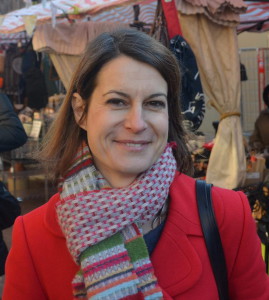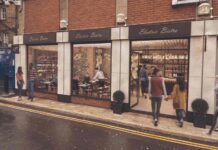 Helen Hayes, Labour Parliamentary Candidate for Dulwich and West Norwood
Helen Hayes, Labour Parliamentary Candidate for Dulwich and West Norwood
1. Housing
There is an overwhelming need for affordable housing in Dulwich and West Norwood. Lambeth and Southwark Councils each have around 20,000 people on the waiting list for a Council home. There are also huge numbers of people living in private rented accommodation who are increasingly priced out of the housing market. Fairer housing is one of the Labour Party’s top priorities. We plan to build 200,000 new homes a year by 2020. We urgently need to change the current Tory Lib-Dem definition of an ‘affordable home’ – currently up to 80% of market rent which isn’t affordable for people even on good incomes – so that we are delivering genuinely affordable housing for local people. We will also regulate the private rented sector, banning letting agents from charging fees to tenants, introducing new three year standard tenancies and limiting rent increases. The Tories would force Lambeth and Southwark Councils to sell more of their Council homes – with so many on the waiting list, this would make the housing crisis far worse than it is at present.
2. Local business
I ran a small business for 15 years so I understand both the immense pride and satisfaction that can come from running your own business and also the pressures small businesses face. The 3,500 local small businesses in the constituency add richness and diversity to our communities and I have undertaken a survey to understand their needs in detail – small business owners told me that they are worried about the affordability of rents, competition from on-line retailers who don’t always pay their fair share of tax, and that many would like to employ apprentices but feel that the current system doesn’t offer them enough support to do so.
The Labour Party will cut business rates for small businesses, freeze energy prices, which are often a significant cost to businesses, and provide tax breaks to small businesses who do the right thing and pay their staff the London Living Wage. I am personally supporting our small businesses in the Brixton Arches by lobbying Network Rail to enable them to return after the refurbishment at affordable levels of rent. We need to make sure that we protect affordable space for our small businesses – they make our area special and they serve their customers well. I think that communities should have more power to protect affordable business space through the local planning system.
Certainly local businesses should be given more encouragement than high street chains – they are what makes our high streets and town centres distinctive and special. In some parts of the world, the planning system is able to distinguish between national chains and independent businesses, and refuse change of use from an independent business to a national chain in certain circumstances. I think it makes sense that we should be able to do that here in the UK.
3. Education
Our local schools have improved massively since I moved to the constituency almost 20 years ago. The Labour government of 1997-2010 transformed education in London, building four new secondary schools in our constituency and vastly improving the quality. We need to set high expectations for all of our children, whatever their background. We need to require the highest standards of education for all our children, and be able to intervene to support and challenge any school that is not delivering this. I’ve worked with parents on the successful campaign to secure a new secondary school for the Dulwich Hospital site, have helped to turn around one of our local primary schools and have taken part in careers days at Elmgreen School and have been to speak to sixth formers at Charter School. If I am elected as the MP for Dulwich and West Norwood I will continue to support our schools in every way I can, lobbying for new schools where we need them, pressing for improvements if needed, speaking to staff and students, and opening up opportunities to visit Parliament.
4. Leisure/Culture
I believe passionately in the ability of culture to inspire people, provide opportunities and even change lives. Within a context of public sector cuts, I think that the funding which is available for cultural projects should be distributed to maximise the support for projects which open up access to culture and the arts and benefit a very diverse range of communities. Even in a context of cuts, we have seen some brilliant cultural projects come to fruition in our area – it was such a delight to be at the opening of the Black Cultural Archives last year, a long cherished goal which has finally (and spectacularly) been achieved, the iconic Lambeth Country Show continues to flourish and Dulwich Picture Gallery now has the Artmobile which takes activities to schools around the constituency and beyond. I am pleased to see both Lambeth and Southwark Councils continuing to invest in leisure opportunities in our area, with the lovely new leisure centre in West Norwood and also Southwark Council delivering free swim and gym opportunities to help us all to be healthier. I will support cultural projects across the constituency, lobbying for funding where necessary and working to ensure that culture and leisure opportunities are accessible to everyone.
5. Environment
Brixton Road has some of the highest pollution levels in London, and air quality is poor in many areas around the constituency. More than 200 people a year die unnecessarily in Lambeth and Southwark because of our poor air quality, and this is completely unacceptable. A major contributor to these deaths is the diesel fumes from cars and buses. Boris Johnson has been woefully slow to clean up the bus fleet, instead choosing to spend his budget on the expensive Routemaster project. We need to make sure that all our buses have low emissions. We also need to improve awareness of the damaging effects of diesel engines, as many people buy diesel cars thinking they are making a green choice because the carbon emissions are lower, when in fact diesel fumes have a very damaging effect on local air quality. We need to improve the monitoring of air quality at sensitive sites such as schools and sheltered housing, so that action (such as closing roads or diverting traffic) can be taken very quickly when pollution reaches dangerously high levels. And fundamentally, we need to make our area safer for pedestrians and cyclists so that people are able to choose greener forms of transport. I’m really pleased that both Lambeth and Southwark Councils are prioritising making our roads safer for cyclists, and reducing the speed limit to 20 mph (I was the councillor in Southwark who proposed this at Council Assembly), as this will make our roads safer and improve air quality.







It is interesting that nowhere in her spiel does she mention she’s an architect. How relevant it is I am not sure but Allies and Morrison have down some good work and grew rapidly in the last 20/30 years, no doubt due to work carried out for big developers. It is a sign of the times, I’m afraid, that a lot of work comes from developers. By the way, it is unlikely that the Winchester proposals will be built due to the massive resistance in the town.
Should voters be worried about the Labour Candidate for Dulwich and West Norwood and her connection to major property developers?
Helen Hayes is partner in Allies and Morrison – the architectural firm based in Southwark responsible for some of the biggest regeneration projects in the country working closely with controversial property developers Lend Lease and also their subsidiary company Oakmayne Properties.
She says above: “Certainly local businesses should be given more encouragement than high street chains’ – Really?
Although she’s pledged her support to the Save Brixton campaign and had meetings with the residents of Guinness Trust and the Brixton Traders Federation currying their vote, it’s unlikely that she revealed to them her company’s role in similar regeneration developments in London such as in Elephant and Castle, Aylesbury Estate, Croydon and Stratford – involving compulsory purchases and the destruction of neighbourhoods.
Nor is it likely that she told them about the controversial Winchester City Centre development in which her company is named as key architects and was judged as fraudulent and unlawful – for reducing the number of affordable housing they were committed to build without approval – among other things.
Although shrouded in secrecy, her company is a powerful force for regeneration in the UK – or what some might call the rampant gentrification of our towns in the UK and known in the industry for the building of luxury apartment projects and billion pound retail projects like Westfield.
Should the voters of Dulwich and West Norwood be concerned about a conflict of interest? How can Helen Hayes be relied on to support fair housing policies?